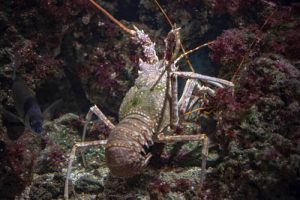Most of us haven’t given much thought to whether, or how, fish and other sea creatures see in the depths of dark, murky ocean water. Researchers at the University of Wisconsin-Madison have thought about that and have combined the features of an African fish and a lobster to create an artificial eye that can see in the dark.
The benefit of this technology is that it will help brighten the dim surroundings in which surgical scopes are asked to perform. Researchers discovered that elephant-nosed fish have “retinas composed of thousands of tiny crystal cups.” Most animals and fish have smooth retinas. The researchers discovered that the miniature crystal cups, gather and intensify red light and this helps the fish locate, and avoid, predators.
Researchers emulated the crystal cups of the elephant-nosed fish by forming thousands of miniature parabolic mirrors – many not any larger than a grain of pollen. The mirrors were then shaped into arrays of light-gathering entities and placed across the surface of a uniformly shaped hemispherical dome. The arrangement was meant to mimic the shape of a lobster and fish eye and allowed the researchers to concentrate the light on specific areas to increase the lights’ intensity and enhance its information-capture abilities.
For research purposes the device was used to guide a college mascot through complete darkness (to the human eye). The device actually picked up rays of light that were not visible to the human eye and guided the mascot through the darkness. It’s believed that this technology will be able to be incorporated into medical devices to provide surgeons better views when operating on patients.
Universe Kogaku designs and manufactures optical lenses for industrial, medical, high tech and electronic applications. Standard and custom lens assemblies are also available for scanners, CCTV, CCD/CMOS, medical imaging, surveillance systems, machine vision and night vision systems.